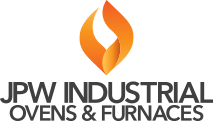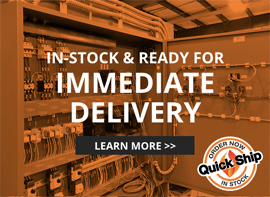
In the world of manufacturing, supply chain management is an essential component of ensuring that factories and production facilities run smoothly.
This is especially true for industries like oven and furnace building, where carefully calibrated components and parts must be sourced from a variety of different suppliers to ensure quality and efficiency. In this post, we’ll take a closer look at how the supply chain affects oven and furnace building and explore some of the ways that manufacturers can optimize their supply chain to maximize output and minimize downtime.
Quality Control
The first key consideration when it comes to the supply chain and oven and furnace building is quality control. Many components used in these machines are highly specialized and must meet exact standards to function properly. This means that manufacturers must carefully vet potential suppliers and establish a rigorous inspection and testing process to ensure that all materials meet their standards.
Lead Times
Another major factor that affects the supply chain in oven and furnace building is lead times. Because many components are custom made or have long lead times, it’s important to plan and order materials well in advance of when they will be needed. This requires a high degree of visibility and coordination across the supply chain, with manufacturers working closely with suppliers to ensure that materials are delivered on time and in the correct quantities.
Disruptions
One issue that can arise when it comes to supply chain management in oven and furnace building is the potential for disruptions. For example, if a key supplier runs into production problems or goes bankrupt, it can cause delays or even halt production altogether. To guard against this, manufacturers must have contingency plans in place and work with multiple suppliers to ensure that they have backup options in case of emergencies.
Inventory Management
In addition to the above considerations, manufacturers in the oven and furnace building industry must also pay close attention to inventory management. Because many components have long lead times, it’s important to have accurate inventory data to avoid over-ordering or running out of critical parts. This requires robust inventory tracking processes and systems, as well as close collaboration between different departments within the manufacturing organization.
In conclusion, the supply chain is a critical component of oven and furnace building, with a range of different factors affecting the quality, efficiency, and effectiveness of production. JPW Ovens & Furnaces takes a meticulous approach to supply chain management to maintain its high-quality production. The company strictly adheres to quality control measures to ensure that each oven and furnace meets the required standards. Lead times are closely monitored and managed to minimize waiting periods and increase efficiency. The company also has robust contingency plans in place to address potential disruptions in the supply chain, ensuring that production never comes to a halt. JPW’s inventory management guarantees that essential components are always available when needed. This approach to supply chain management makes JPW Ovens & Furnaces a reliable player in the industry, always prepared to meet the demands of its customers.


